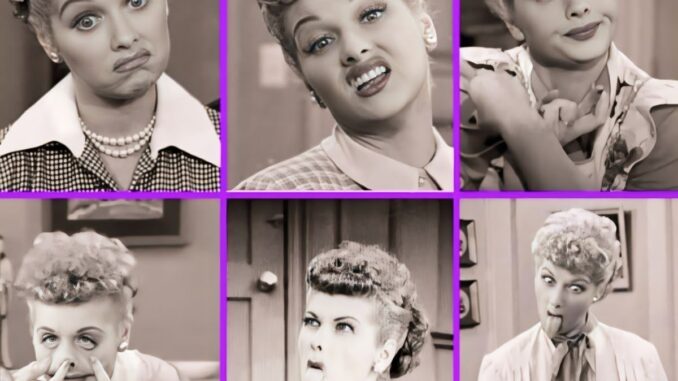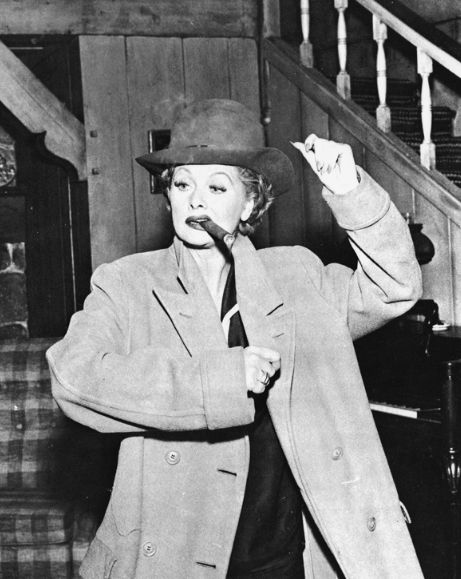
An Awkward Beginning
In television history, few sitcoms have left a deeper mark than I Love Lucy. At the center is Lucy Ricardo—a clever but often hapless housewife whose everyday misadventures continue to delight audiences.
One classic example comes from the episode titled “Lucy poses as a cigar factory worker when she can’t pay for the cigars she picked out for Uncle Alberto!”. What begins as a simple errand—buying cigars for Uncle Alberto—quickly turns into a crisis when Lucy realizes she cannot pay. Instead of finding an easy solution, she does what Lucy does best: invents a plan so outrageous it’s bound to collapse. This time, she disguises herself as a cigar factory worker, setting the stage for comedic chaos.
The Golden Formula of I Love Lucy
This storyline perfectly illustrates the timeless formula that powered the show: an ordinary problem → Lucy devises a seemingly clever plan → the plan spirals into disaster → audiences roar with laughter.
In this case, pretending to be a factory worker is both absurd and inventive, capturing Lucy’s trademark: a woman driven by good intentions yet constantly derailed by her own over-the-top schemes. Viewers know she’s destined to fail, but the joy lies in watching exactly how spectacularly it happens.

The Power of Physical Comedy
What elevates this episode beyond its premise is Lucille Ball’s mastery of physical comedy. As Lucy fumbles her way through the cigar factory, audiences are treated to a series of unforgettable gags: clumsy attempts at rolling cigars, frantic efforts to keep pace with the assembly line, and exaggerated facial expressions that perfectly capture her panic.
Ball had an unmatched ability to transform small gestures into comic masterpieces. These moments not only drew laughter in the 1950s but have endured as iconic images in popular culture—proof that her talent was universal and timeless.
Social and Cultural Layers
Beneath the humor, the episode also reflects the social fabric of 1950s America. At a time when women were expected to remain within the domestic sphere, Lucy’s foray into an industrial workplace creates comic dissonance. Her awkwardness in the factory highlights the gender norms of the era, while simultaneously poking fun at them.
The episode also satirizes consumer behavior. Lucy desires something she cannot afford and, instead of confronting reality, tries to improvise a solution that’s both naive and ridiculous. It’s a gentle critique of everyday financial struggles, wrapped in laughter.
The Lasting Legacy of I Love Lucy
More than half a century later, I Love Lucy remains as influential as ever. Episodes like the “cigar factory” showcase how simple premises, when combined with sharp writing and brilliant performance, can create comedy that never ages.
This formula—finding the extraordinary in the ordinary—has inspired countless sitcoms, from Friends and Seinfeld to The Big Bang Theory. More importantly, the show paved the way for female leads in television comedy: women who could be clever, clumsy, and unapologetically funny all at once.
Conclusion: An Enduring Cultural Icon
The “cigar factory” episode captures everything that makes I Love Lucy a cultural treasure: inventive writing, Lucille Ball’s comedic genius, and subtle social commentary delivered with charm.
Today, Lucy Ricardo remains a symbol of humor, resilience, and relatability. Episodes like this remind us why I Love Lucy is more than just a sitcom—it is a timeless cultural legacy that continues to entertain and inspire generations worldwide.
